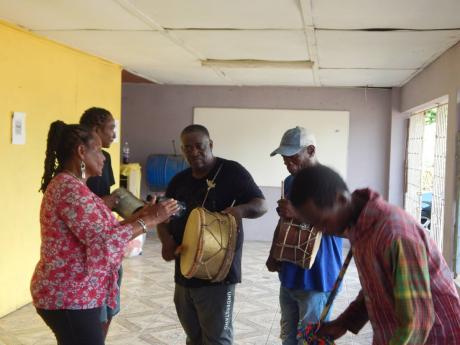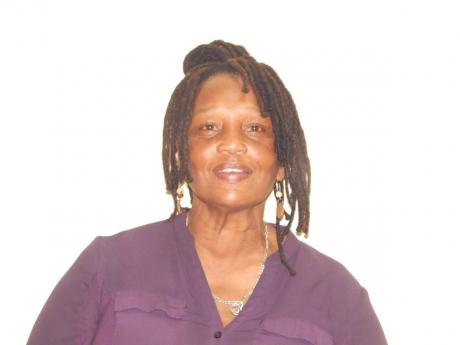Jonkunoo groups seek sustainability
“We were performing at Devon House one time,” Renford Foster, leader of the Southwest St Andrew Jonkunoo group said, “and I heard a lady tell her child, ‘Don’t watch dem. Dem is obeah. Dem worship devil. See de devil deh wid him pitchfork.’ ”
Foster was speaking recently in the Delacree Gardens Community Centre at a workshop on Jonkunoo groups. There were murmurs and nods from several of the others present. All were evidently familiar with the prejudice and misunderstanding of the traditional folk form that was shown by the woman.
The theme of Foster’s anecdote was echoed the very next day at a meeting of the committee organising a series of islandwide training workshops for established and potential Jonkunoo groups. The committee comprises members and co-opted members of the Institute of Creative Training & Development (ICTD), the entity behind the CHASE Fund-sponsored workshops.
One member said that her pastor was convinced that Jonkunoo was the devil’s work and told her that she had to choose between the church and her work on the Jonkunoo project. She chose the latter, the member said.
The workshop had been requested by Los Angeles-based designer, researcher and events producer Marie Kellier, a Jamaican who migrated to the United States some 30 years ago but who has maintained her interest in Jamaican culture and heritage. A screenwriting fellow with the Academy of Motion Picture Arts and Sciences, she holds a BA in Theater Arts and an MFA in Film and Television Production.
As CEO of MARIKEL International, she designs and produces festivals and art installations. She was interim director of Outreach for the California African American Museum, and while executive/creative director of International Eye LA, she raised hundreds of thousands of dollars for education, arts and cultural projects for numerous Los Angeles arts institutions.
She is currently in Jamaica to find out more about authentic Jamaican Jonkunoo steps, costumes and music. Kellier admitted that, in a number of the Jonkunoo events she has produced, some of the components were not authentic, but, she added, “I’ve been planning a Jonkunoo festival for years.” The workshop was part of her efforts to mount it.
Also present at the workshop was its facilitator, Glendon Watson, himself a researcher and events producer. He worked for decades in a similar position at the Jamaica Cultural Development Commission (JCDC).
Watson told Kellier that the prejudice was so bad in Kingston in the 1940s that it caused a “rebellion”. The city’s upper classes viewed the practice as witchcraft and it was banned by the government. This led to protests by Jonkunoo adherents, protests so fierce the mayor had to seek refuge in a ship in Kingston Harbour.
However, by the following decade, things had quietened down sufficiently for the Gleaner company to run a competition for research into Jonkunoo history and traditions. “It’s very important for us to keep these traditions alive and pass them on to the next generation,” Watson said.
He told his audience that, originally, Jonkunoo was not only accepted but, ironically, enjoyed by the slave owners. “Jonkunoo was a form of resistance to slavery,” Watson explained. “When the plantation owners gave the slaves time off from work, they took the opportunity to dance and perform. The slave owners enjoyed the music, not knowing who was hidden behind the masks – which is why the masks were created in the first place – and didn’t realise they were being mocked.”
After the demonstrations by members of the Southwest St Andrew Jonkunoo group of traditional dance steps and discussions about the form’s music, Kellier asked what efforts could be taken to revive general interest in Jonkunoo.
Watson said that Jonkunoo-related activities have to be sustainable throughout the year. “Lots of youngsters see their parents dancing Jonkunoo but not earning anything off it, so they are not interested in it,” he pointed out. “We have to make it into an industry so that year-round there is costume creation, music composition and instrument making.”
He reminded the group that, at the recent launch of the Jonkunoo revival project initiated by the ICTD, in consultation with the JCDC, Culture Minister Olivia Grange had said she wanted to see 300 Jonkunoo dancers on the National Stadium field in August for the ‘Emancipendence’ Grand Gala festivities.
“We can’t wait until June and July to start making 300 costumes,” he said.
One young man, Shane Bennett, who had been taking part in the discussions, promised that a stage show he was planning for the Delacree Gardens community for April would have a Jonkunoo theme and costumes.


